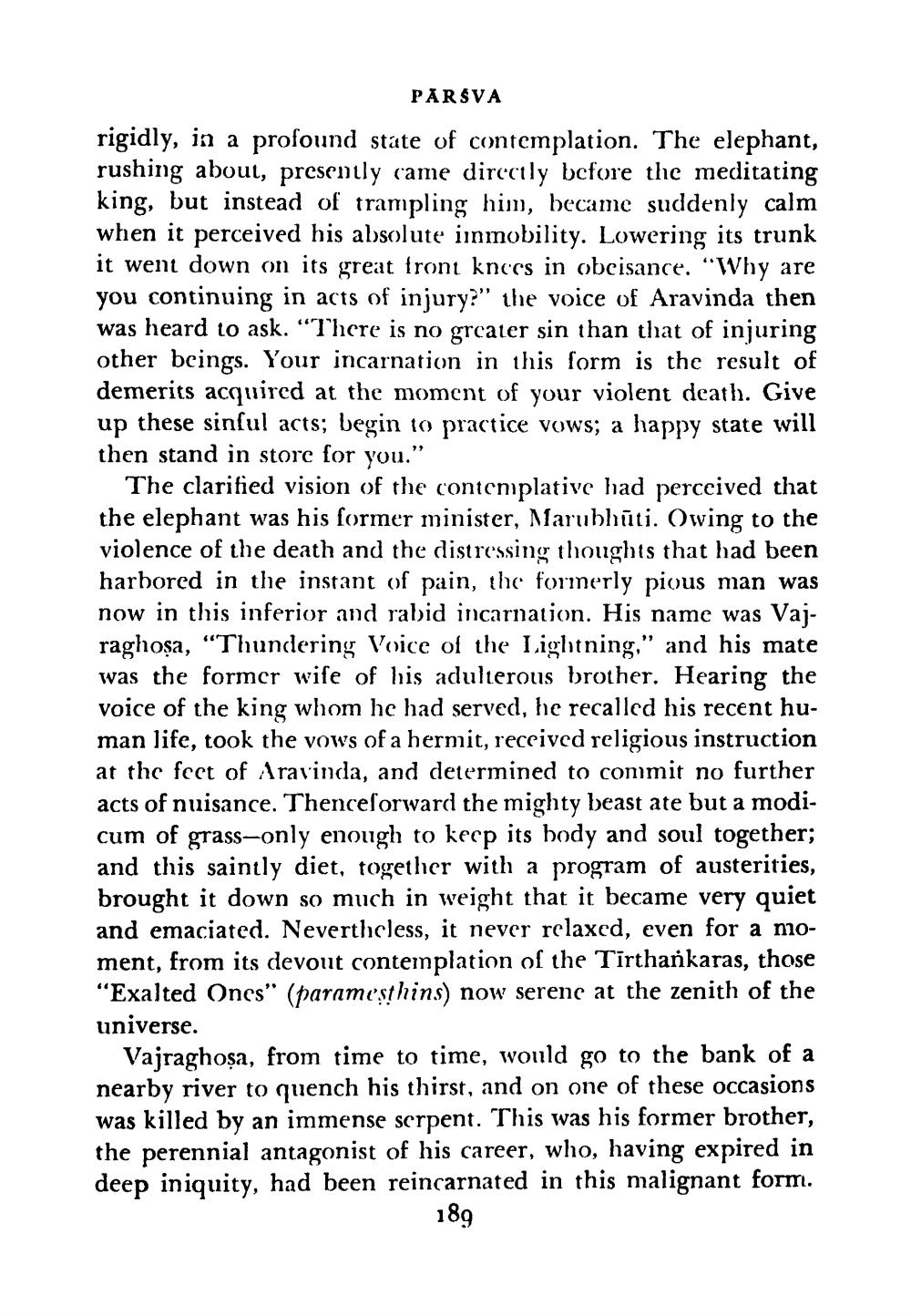________________
PARSVA
rigidly, in a profound state of contemplation. The elephant, rushing about, presently came directly before the meditating king, but instead of trampling him, became suddenly calm when it perceived his absolute inmobility. Lowering its trunk it went down on its great front knces in obcisance. “Why are you continuing in acts of injury?" the voice of Aravinda then was heard to ask. “There is no rcater sin than that of injuring other beings. Your incarnation in this form is the result of demerits acquired at the moment of your violent death. Give up these sinful acts; begin to practice vows; a happy state will then stand in store for you.”
The clarified vision of the contemplative had perceived that the elephant was his former minister, Marubhūti. Owing to the violence of the death and the distressing thoughts that had been harbored in the instant of pain, the formerly pious man was now in this inferior and rabid incarnation. His name was Vajraghoșa, “Thundering Voice of the Lightning," and his mate was the former wife of his adulterous brother. Hearing the voice of the king whom he had served, he recalled his recent human life, took the vows of a hermit, received religious instruction at the foot of Aravinda, and determined to commit no further acts of nuisance. Thenceforward the mighty beast ate but a modicum of grass-only enough to keep its body and soul together; and this saintly diet, together with a program of austerities, brought it down so much in weight that it became very quiet and emaciated. Neverthcless, it never relaxed, even for a moment, from its devout contemplation of the Tīrthankaras, those “Exalted Ones" (paramesthins) now serene at the zenith of the universe.
Vajraghoșa, from time to time, would go to the bank of a nearby river to quench his thirst, and on one of these occasions was killed by an immense serpent. This was his former brother, the perennial antagonist of his career, who, having expired in deep iniquity, had been reincarnated in this malignant form.
189




